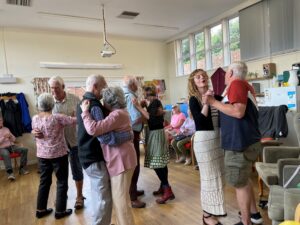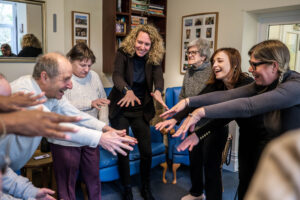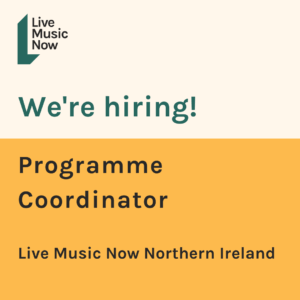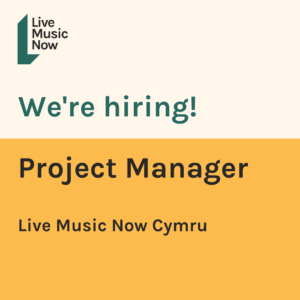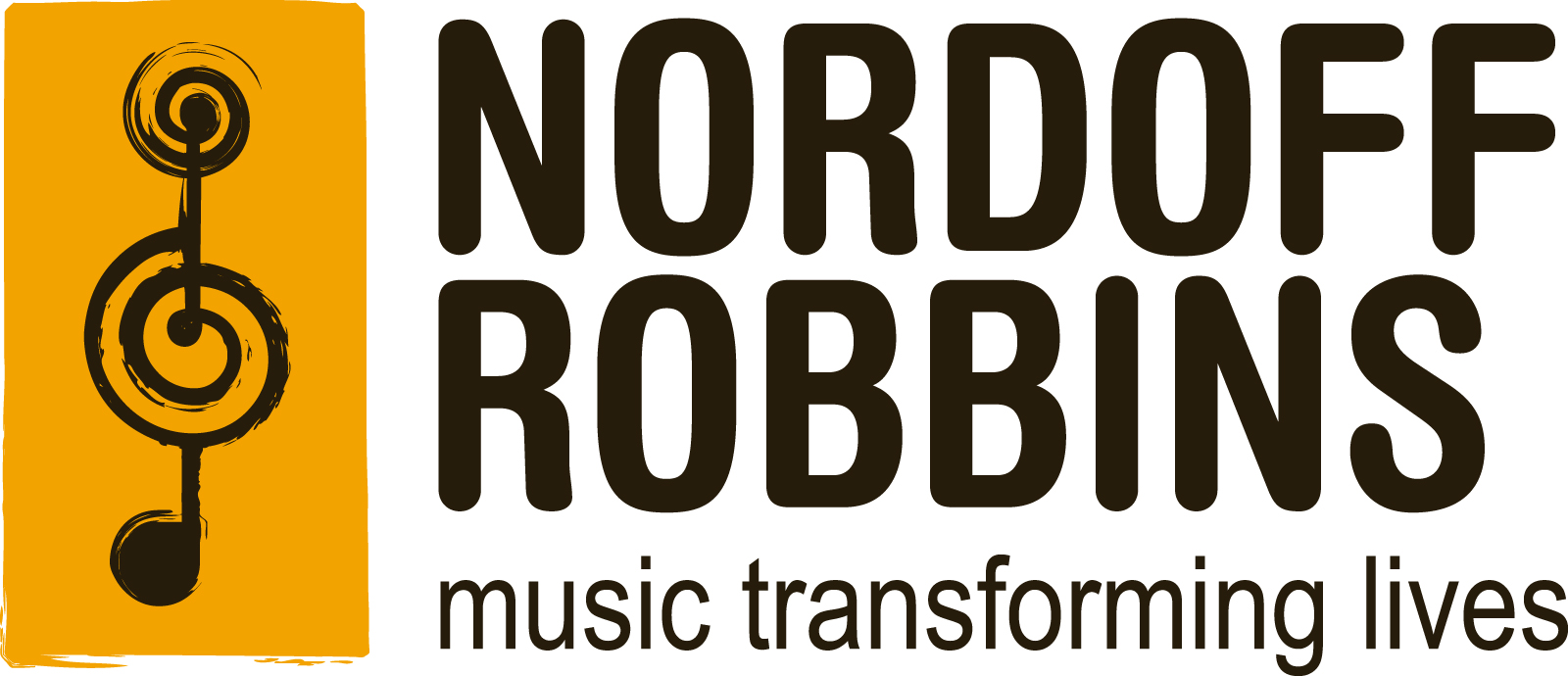
LMN's Director of Musicians' Development, Nina Swann, spoke with Nordoff Robbins' Director of Music Services Simon Procter about music therapy and routes into the field for LMN musicians.
What is music therapy?
Broadly speaking music therapy is making the potential personal and social benefits of music-making available to people for whom those benefits might be most useful but who also find it hardest to access them, whether that’s due to physical restrictions, life circumstances or conditions such as autism, dementia or psychosis where the intimacy of making music with another person may be both a massive hurdle and an important experience. That means not just playing to people, but musically helping them to engage and intervening strategically to craft musical experiences which are meaningful for them in their life situations.
How is it different from the activity LMN musicians deliver with our participants?
I don’t think there is a clear dividing line between the two. Historically there’s been a talking up of division between music outreach and music therapy for professional reasons, especially in the UK, but I think many users of services would say that it’s the quality of the personal-musical experience that matters to them rather than the professional label. Music outreach tends to happen in short bursts, in projects, whereas music therapy is more likely to be ongoing and to involve developing an understanding of people’s situations and how music might fit into that, and building a productive, working musical alliance between therapist and client(s) leading to change.
Music therapists are working towards something that is musical but goes beyond the music therapy sessions: it’s about developing people’s breadth of experience of how they can be, in themselves, in the world and in relating to others. This in turn leads to the various health-related, social and educational benefits that researchers identify as outcomes of music therapy.
What are the routes into music therapy?
Nordoff Robbins offers a two-year Masters programme, its Master of Music Therapy (Nordoff Robbins): Music, Health, Society course. Successful completion of this gives eligibility to apply to the Health and Care Professions Council for registration as a music therapist, the UK legal prerequisite for working in the profession.
Although it’s a full time commitment (two days at the teaching base – our Centre in London or the RNCM in Manchester, one day on placement, and one day of reading, writing and practising) most students continue to work as professional musicians, teachers and composers whilst completing the course.
Qualified music therapists can go on to work in the NHS, schools, hospices, private care homes, charities (such as Nordoff Robbins itself) and in many community settings.
What qualities/skills do you look for in potential music therapy students?
At Nordoff Robbins, after the initial online and video applications we always audition face to face. Above all we are looking for musicians with a capacity for musical companionship. They need to be able to listen to and respond to their clients, to attend to them in a way that is musically meaningful, imaginative and sensitive. They also need to have the self-confidence to improvise, be unafraid to use their voice and physicality, be able to hear everything another person offers as music, and be able to offer a sensitive, harmonic accompaniment.
They don’t need to be classically trained: some of our students don’t even read traditional notation. But they need a command of their instrument(s), a good ear, musical awareness, imagination and generosity, systematic thinking and a real feel for working with people. We want applicants to come reasonably well informed as to what music therapy is, with personal awareness of what music has to offer people, and with some experience of working with people who might be clients in music therapy. We positively encourage applications from people with life experience, and our students currently range in age from their 20s to their 50s. Community musicians with experience of working with people in healthcare or educational settings (such as LMN musicians) are exactly the kind of people we are interested in and often make great music therapists.
How can people apply?
Go to our website and download the application form. You’ll be asked to send in a video of yourself playing alongside the form. The application deadline is the 20 January for the September 2016 intake in London. More information can be found here: http://www.nordoff-robbins.org.uk/content/what-we-do/train-music-therapist/how-apply
How does the NR approach differ from other training courses?
The Nordoff Robbins approach is ‘music-centred’ rather than psychoanalytic or behavioural. We take musicians and teach them to work musically with people. We emphasise musical outcomes for clients: we see music and musical experience as the stuff of life, not just as symbolic of something else. We seek to make use of all kinds of musical possibilities, including performance, as potential parts of a therapeutic process. Above all, we see music therapy as a matter of musical craft, so we spend a lot of time in small groups developing students’ practical musical abilities to engage people musically and to lead them into new and transforming experiences.
How might it complement performing as part of a portfolio career?
For many music therapists, music therapy is one aspect of their professional life in music alongside performing, teaching or composing. Our students tell us that it overlaps with and enriches all the other dimensions of their practice. And that fits with our understanding of the training as being a broadening and a focusing of people’s musicianship so that they can use it to impact on the lives of others as effectively as possible.
